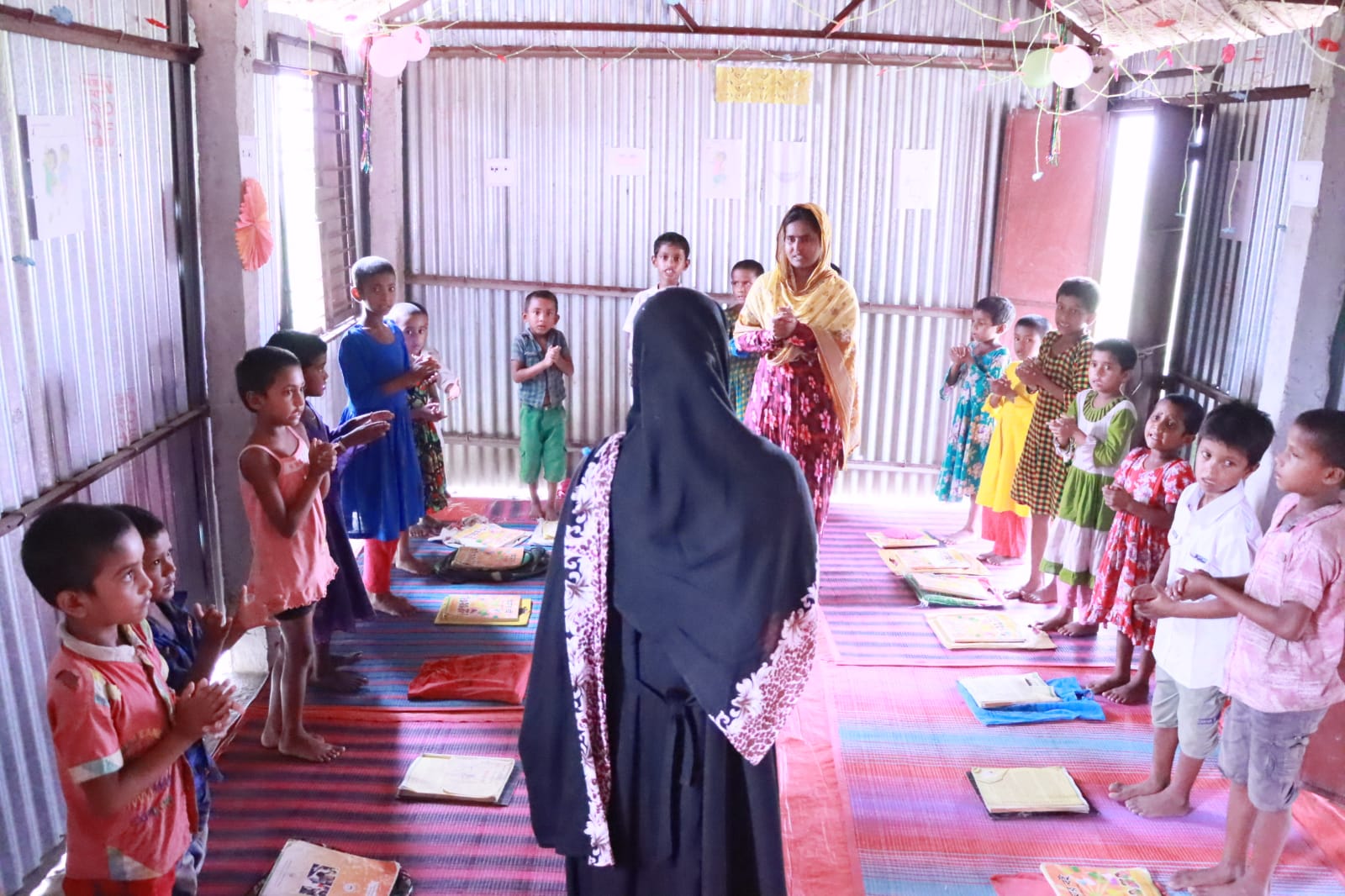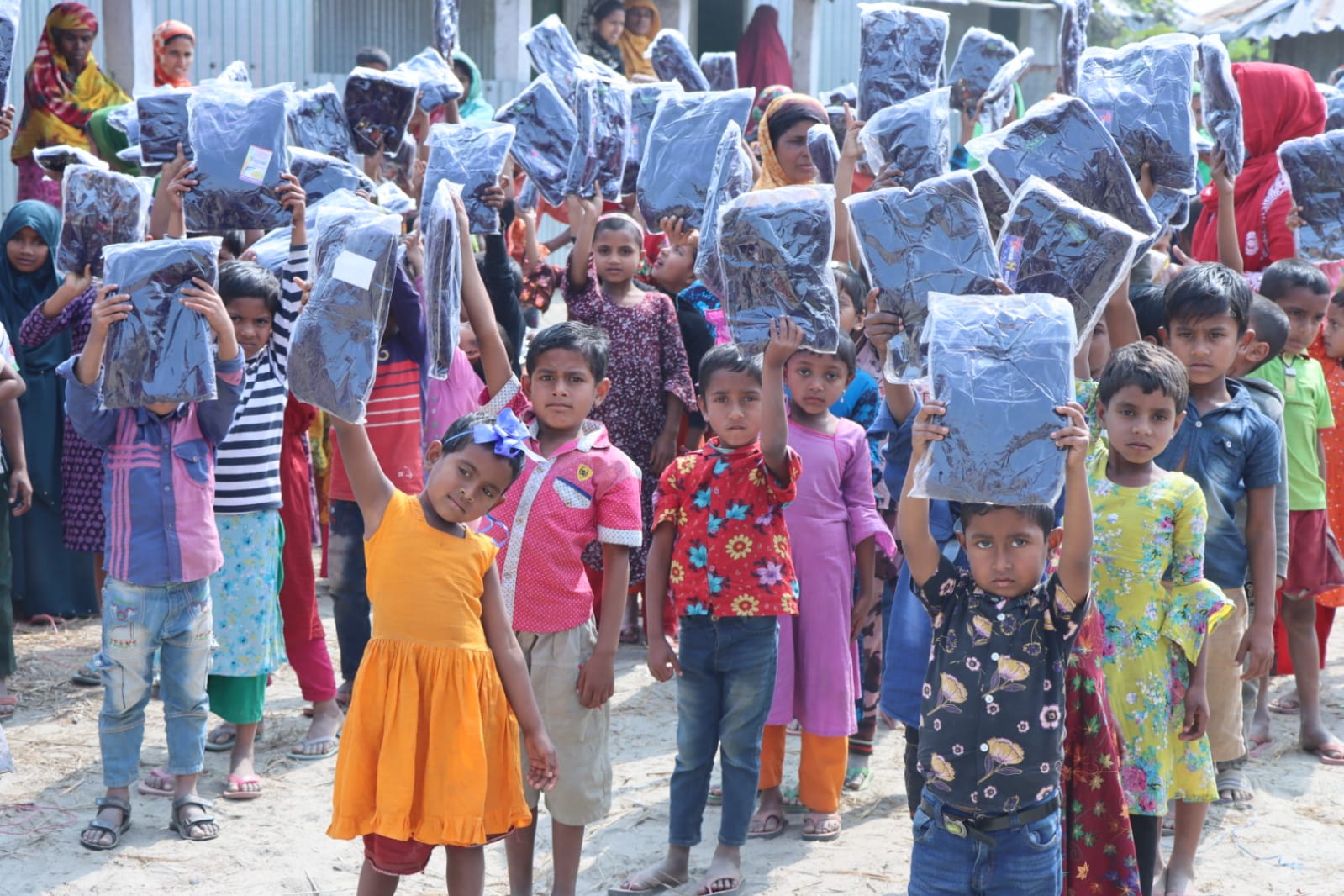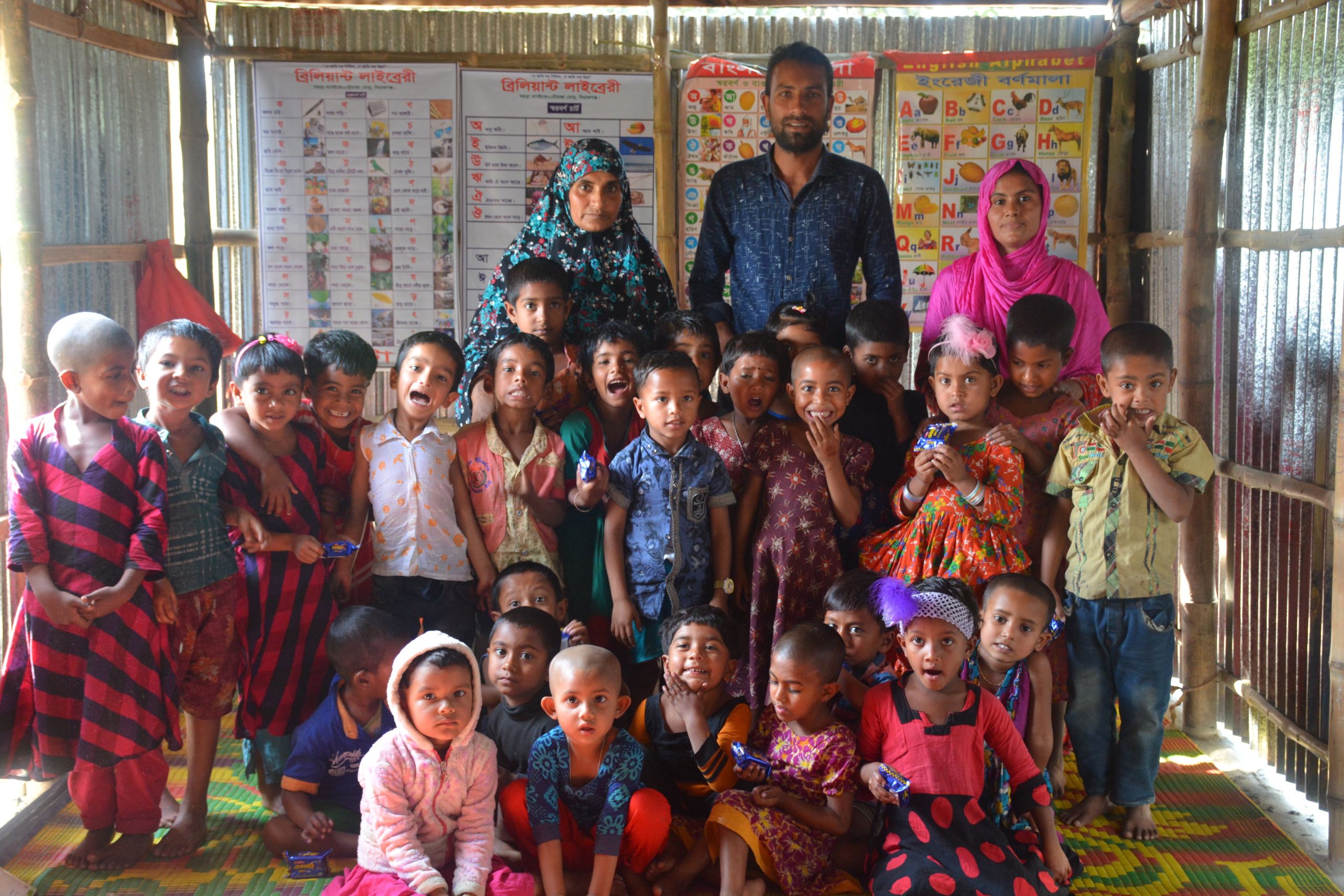One of the major characteristics of Bangladesh is its geographical position as a river Delta for the Jamuna, Padma, and Meghna rivers which contain within them the waters of the Ganga, Teesta and many other rivers. The rivers of Bangladesh provide fish to eat, replenishment of the soil and outstanding natural beauty. At the same time, unpredictable flooding and sand-bank erosion cause great suffering and destruction. The poverty maps of 2005 produced by the Bangladesh Statistical Bureau show clearly that the greatest needs are amongst those living on the exposed banks for the large rivers. Such people often live hand-to-mouth, sometimes lose their property, lack motivation for education or the skills for income generation and are unaware of the help that might be available to them.

Thus in education, although a high percentage of children start their primary education, and the government has made remarkable progress in limiting the drop out rate (BBS Statistical Year Book 2019, p444), nevertheless that rate is much higher in these vulnerable riverbank communities. Our own surveys in 2015 indicated that in such areas of Sirajganj, Bogura and Rangpur over 50% of children were not completing their primary education.

In terms of adult literacy, although nationally the rate has risen to over 70%, in these particular districts in rural locations, it is still only of the order of 50% or less, particularly among women (BBS Statistical Year Book 2019, p470). Our own limited surveys in 2015 agreed with this observation.
The local communities continually asked our surveyors for skills training. Along with education, skills training provides access to jobs and income generating. Thus tailoring skills, leading either to small enterprises, or garments industry jobs, training in IT skills, particularly word processing and spreadsheets in Bangladesh and English, plus training in vocational areas such as eclectics, fridgeration, and air-conditioning are highly valued for the employment opportunities they provide locally and internationally.
Lastly, a lack of awareness on health and nutrition issues continues to trap people in malnourishment, diseases such as diabetes, the detrimental consequences of child marriage and failure to empower women to contribute to family and community well-being. The COVID-19 pandemic is clear evidence of the need for awareness and training in cleanliness and hygiene in poverty-trapped communities.
It is the desire of the Delta Development Project(DDP) to address in an integrated way these problems of educational drop-out, adult literacy, skills training and social awareness.


